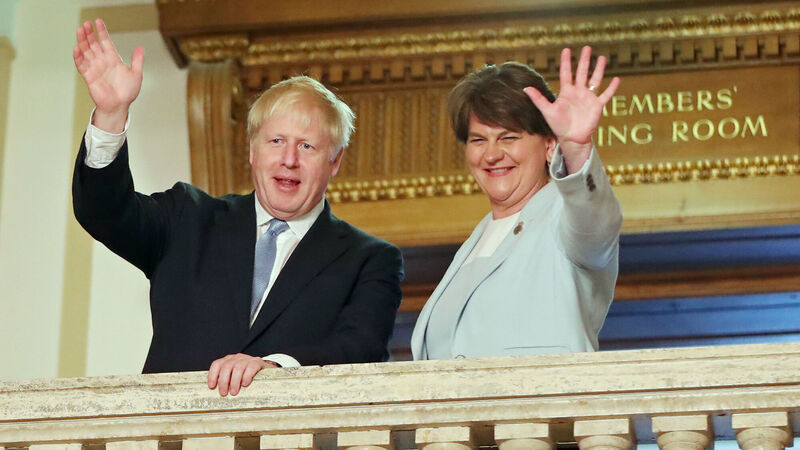Fergus Finlay: DUP yet to realise Tories never had its best interests at heart

Boris Johnson meets with then DUP leader Arlene Foster at Stormont in 2019. Picture: Niall Carson/PA Wire
Try from €1.50 / week
SUBSCRIBE
Boris Johnson meets with then DUP leader Arlene Foster at Stormont in 2019. Picture: Niall Carson/PA Wire
What an odd pair they are. It’s not even clear how they became a pair in the first place, but there they are, supposed to be allies and partners, and instead circling around each other like the two lads in 'The Banshees of Inisherin'. Doing as much self-harm as in the movie, creating as much collateral damage.
If they trusted each other once, those days are long gone. Now, every time either of them has anything to say, they spend their whole time muttering about imminent betrayal.
Already a subscriber? Sign in
You have reached your article limit.
Annual €130 €80
Best value
Monthly €12€6 / month
Introductory offers for new customers. Annual billed once for first year. Renews at €130. Monthly initial discount (first 3 months) billed monthly, then €12 a month. Ts&Cs apply.
CONNECT WITH US TODAY
Be the first to know the latest news and updates
Newsletter
Sign up to the best reads of the week from irishexaminer.com selected just for you.

Select your favourite newsletters and get the best of Irish Examiner delivered to your inbox
Tuesday, February 10, 2026 - 12:00 PM
Tuesday, February 10, 2026 - 10:00 AM
Tuesday, February 10, 2026 - 12:00 PM
© Examiner Echo Group Limited